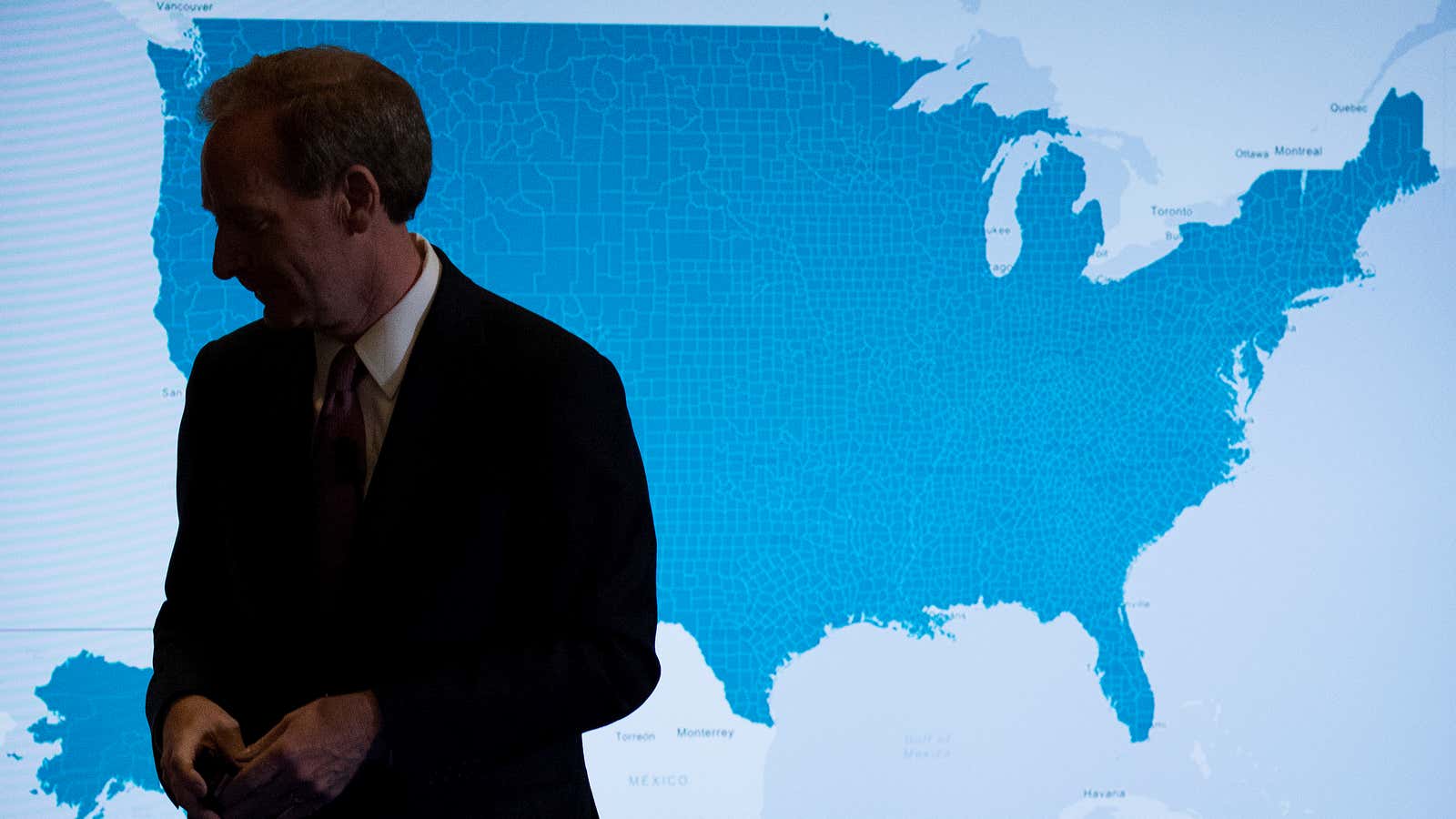In terms of generating goodwill with employees and customers, Microsoft risked little in voicing support for DREAMers, undocumented immigrants who were brought to the US as children and put on a path to citizenship under an Obama-era policy now threatened by the Trump administration.
But in terms of maintaining the momentum for another Microsoft priority—tax reform—there’s a risk to urging quick Congressional action to preserve Deferred Action for Childhood Arrivals (DACA), which US president Donald Trump promised to phase out if Congress didn’t “legalize” it within six months.
“There is nothing that we will be pushing on more strongly for Congress to act on,” Brad Smith, Microsoft’s president and chief legal officer, said on interview with NPR yesterday (Sept. 5) after Trump punted to the legislature. “We put a stake in the ground. We care about a tax reform bill. The entire business community cares about a tax reform. And yet it is very clear today a tax reform bill needs to be set aside until the DREAMers are taken care of. They have a deadline that expires in six months. Tax reform can wait.”
He added that if the US government moves to deport any of the 39 DREAMers who are Microsoft employees, “it’s going to have to go through us to get that person.”
In a company blog post, Smith elaborated on Microsoft’s belief that Congress needs to reprioritize its fall legislative calendar to adopt DACA legislation protecting protect America’s 800,000 DREAMers (the acronym applies to immigrants who would have qualified for protection under the Development, Relief, and Education for Alien Minors Act, a bipartisan bill introduced in the Senate in 2001) before it tries to pass a tax-reform bill:
“This is the only way, given the number of legislative days Congress has scheduled over the next six months, we realistically can expect Congress to complete DACA legislation in time…
We say this even though Microsoft, like many other companies, cares greatly about modernizing the tax system and making it fairer and more competitive. But we need to put the humanitarian needs of these 800,000 people on the legislative calendar before a tax bill. As an employer, we appreciate that Dreamers add to the competitiveness and economic success of our company and the entire nation’s business community. In short, urgent DACA legislation is both an economic imperative and a humanitarian necessity.”
Expectations for major tax reforms by a business-friendly, Republican-controlled Congress were a cornerstone of the stock market rally that followed Trump’s election victory in November. But as Eshe Nelson has reported for Quartz, traders no longer expect much action, if any, on tax reform, infrastructure spending, or deregulation any time soon. Economists, too, have lowered their expectations for US fiscal policy changes in the next year.
If Congress indeed fails to pass an overhaul to the US tax code, it certainly won’t be the fault of the DREAMers—you can chalk that up instead to Congressional infighting and to Trump’s inability to make policy on a range of issues. But the DREAMers no doubt would be a convenient scapegoat for anyone looking for one.




